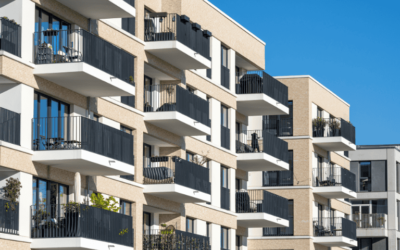To reduce energy usage and save on energy costs, understanding how your organization uses energy is crucial. Conducting an internal energy audit can help identify areas for improvement and maximize energy efficiency. Here are eight tips to get you started:
1. Learn Your Metrics and Benchmarks
Utilize tools like the ENERGY STAR© Portfolio Manager to track and manage water and energy usage across all your buildings. Enter consumption data, cost information, and operational usage details to generate trackable metrics. The ENERGY STAR Portfolio Manager can even provide an ENERGY STAR score comparing your buildings’ energy performance to similar ones nationwide.
2. Find Air Leaks
Walk around your building and search for air leaks. On cold days, you can feel for cool drafts by placing your hand near windows, doors, baseboards, and electrical outlets. Make note of any air leaks you find in a journal for later assessment and repair.
3. Verify Insulation Levels
Ensure your building has adequate insulation to prevent energy loss. Older buildings may not meet current insulation standards, so check the thickness of exterior wall insulation using industry resources like those provided by the Insulation Institute. If applicable, inspect attic insulation to ensure it covers the floor joists.
4. Check Your Thermostat
Optimize your thermostat settings for energy savings. Adjust temperatures slightly to avoid overcooling or overheating spaces, especially during non-office hours. Consider installing smart thermostats to automate temperature regulation and further reduce energy usage.
So, you performed an energy audit, now what do you do with this information? Did you know that there are major incentive and rebate recovery options for commercial organizations that are making significant energy saving improvements? To see if your next energy efficiency project has rebate recovery options, schedule a call here.
5. Inspect Your HVAC
Regularly maintain your HVAC system to ensure optimal performance. Change filters every 12 weeks and schedule annual servicing by a technician. If your HVAC unit is over 15 years old, consider upgrading to a more energy-efficient model to reduce energy consumption.
6. Look at Your Lighting
Upgrade to energy-efficient LEDs if you’re still using incandescent or fluorescent lighting. LEDs last longer and use less energy, providing significant savings over time. Additionally, use dimmers and timers to control lighting usage, especially in areas where lights may be left on unnecessarily.
7. Assess Nighttime Power
Reduce energy waste by addressing power consumption during non-operational hours. Office equipment and industrial machinery can still draw power even when not in use. Consider unplugging devices or using energy-efficient power strips to ensure they are fully turned off when not in use.
8. Implement Behavioral Changes
Encourage energy-saving behaviors among employees, such as turning off lights and equipment when not in use. Provide training and reminders to reinforce energy-efficient practices throughout your organization.
Professional Audits
When it comes to conducting comprehensive energy audits, it’s often beneficial to enlist the expertise of a professional. Energy auditors have the knowledge and tools to assess your building’s energy usage thoroughly and provide tailored recommendations for improvement. There are different levels of professional audits to consider, ranging from basic walk-through audits to more detailed analysis such as ASHRAE Level II or III audits. A basic audit typically involves a visual inspection and simple data collection, while ASHRAE Level II audits include a more in-depth analysis of energy use patterns and potential savings opportunities. ASHRAE Level III audits involve even more detailed analysis, including computer modeling and financial analysis to determine the feasibility of energy-saving measures. Depending on your organization’s needs and goals, consulting with a professional auditor can help you choose the right level of audit to achieve maximum energy efficiency and cost savings.
Create a Sustainable Facility with Incentive Rebate360
Incentive Revbate360 provides professional rebate management assistance to help businesses and commercial facilities offset costs of their energy efficiency projects. Contact our rebate experts to learn how you can save by calling 480-653-8180, emailing [email protected], or schedule a call that fits your needs by clicking the button below!





0 Comments